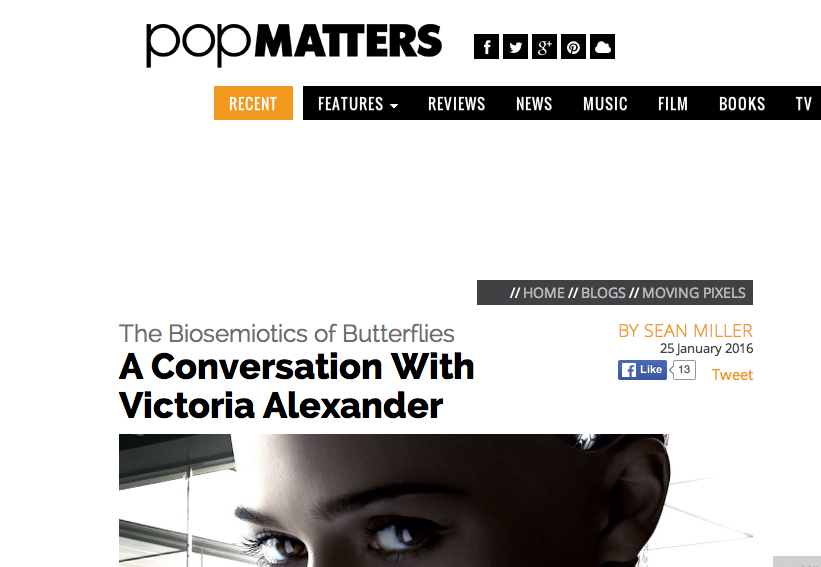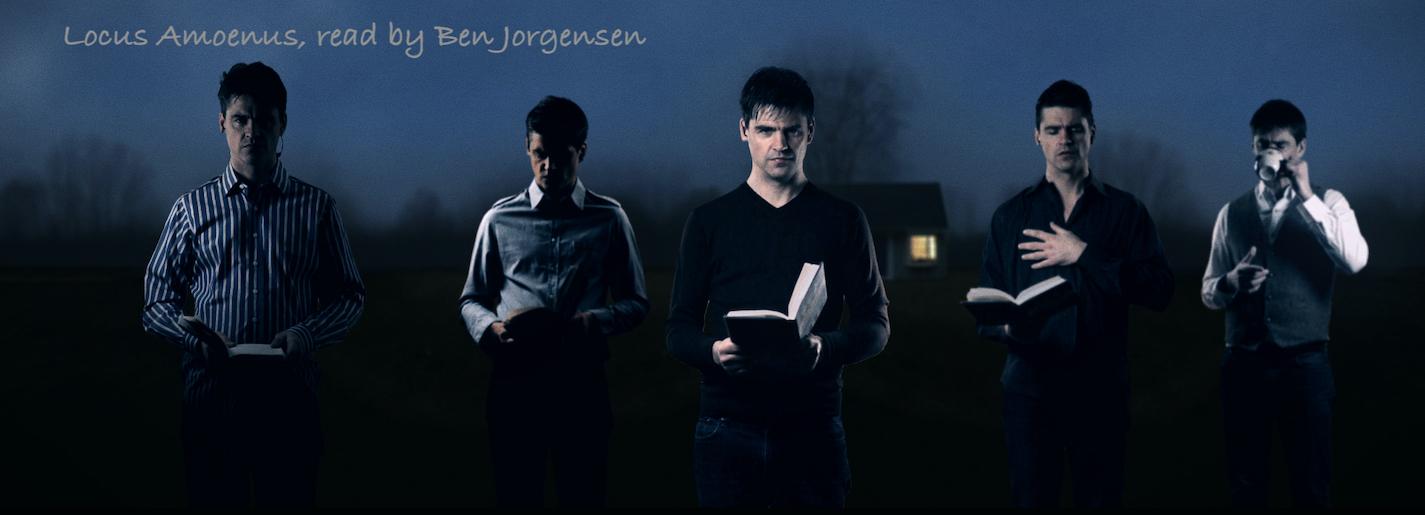WYBCX The Art World Demystified, Hosted by Brainard Carey

In this 45 min interview, VN Alexander’s talks with Brainard about why art is so important to learning, about the little-known “artistic” evolutionary mechanisms (other than mutation/gradual selection) that help create new species, about what the term “intelligence” in “artificial intelligence” means, about the difference between computer algorithms and poetic thinking –and lots more.
Category Archives: –biosemiotics
Fine Lines reviewed in Nature, The New Yorker and Washington Post
 My favorite novelist, Vladimir Nabokov, is also my favorite evolutionary theorist. There is a fine line between art and science. In this beautiful coffee-table book, edited by Stephen Blackwell and Kurt Johnson, I have an essay called, “Chance, Nature’s Practical Jokes and the ‘Non-utilitarian Delights’ of Insect Mimicry.”
My favorite novelist, Vladimir Nabokov, is also my favorite evolutionary theorist. There is a fine line between art and science. In this beautiful coffee-table book, edited by Stephen Blackwell and Kurt Johnson, I have an essay called, “Chance, Nature’s Practical Jokes and the ‘Non-utilitarian Delights’ of Insect Mimicry.”
Fine Lines: Vladimir Nabokov’s Scientific Art hit the bookstores this week. So far it’s been favorably reviewed in The New Yorker and the Washington Post.
And in Nature:

PopMatters: Sean Miller interviews VN Alexander
 Artificial intelligence is all the rage these days. Case in point: while I was watching football this past weekend, there were two television commercials in heavy circulation during the games that featured AI avatars—Siri and Watson—having life-like conversations with actors.
Artificial intelligence is all the rage these days. Case in point: while I was watching football this past weekend, there were two television commercials in heavy circulation during the games that featured AI avatars—Siri and Watson—having life-like conversations with actors.
As you may know, I have a few opinions about the prospects and limitations of AI. Recently, I had an email chat with novelist and philosopher of science Victoria Alexander about AI, art, and chance. Alexander’s work focuses on the uses of chance in nature and in fiction and the changing conceptions of chance in science, religion, and art. What follows has been lightly edited for clarity. Continue reading
How can art and science interact meaningfully?
Based on a talk at the Leonardo Art and Science Rendezvous (LASER) meeting in NYC on April 12, 2014, Victoria N Alexander, PhD discusses how art can benefit science through a biosemiotic perspective. This is the second video in the “Science, Art and Biosemiotics” series, produced and directed by Lucian Rex
Victoria N Alexander speaking at NY LASER 4/12/14
 NY LASER, a Leonardo Education and Art Forum (LEAF) Rendezvous Event
NY LASER, a Leonardo Education and Art Forum (LEAF) Rendezvous Event
What: Wine + discussion
Where: LevyArts: RSVP for info info@dactyl.org
When: Saturday, April 12th from 4:00 – 7:00 pm
The Science of Making Choices
What happens in your body when you choose to go right or left? What makes your choices? your Self? What does the word “choice” really mean?
VN Alexander, PhD discusses the science of making choices from a complexity science-biosemiotics perspective. From “Science, Art and Biosemiotics” series, produced and directed by Lucian Rex.
To read more about this topic see The Biologist’s Mistress: Rethinking Self-Organization in Art, Literature and Nature.
The Biologist’s Mistress
 My new non-fiction title, The Biologist’s Mistress: Rethinking Self-Organization in Literature, Art, and Nature, has been released by Emergent Publications. Last year, I tried to distinguish myself from popular Harlequin Romance writer Victoria Alexander by changing my novel-writing pen name to Tori Alexander. But I kept Victoria N. Alexander for my philosophy of science work, assuming that I ran no risk of being confused with Victoria Alexander on that front. A couple of months ago, I wrote to a colleague in Denmark telling him that my new book, Biologist’s Mistress, would be released soon. He wrote back quickly saying that he had ordered my book from Amazon, but strangely the title (by Victoria Alexander) in Denmark had been translated into the “Perfect Mistress.”
My new non-fiction title, The Biologist’s Mistress: Rethinking Self-Organization in Literature, Art, and Nature, has been released by Emergent Publications. Last year, I tried to distinguish myself from popular Harlequin Romance writer Victoria Alexander by changing my novel-writing pen name to Tori Alexander. But I kept Victoria N. Alexander for my philosophy of science work, assuming that I ran no risk of being confused with Victoria Alexander on that front. A couple of months ago, I wrote to a colleague in Denmark telling him that my new book, Biologist’s Mistress, would be released soon. He wrote back quickly saying that he had ordered my book from Amazon, but strangely the title (by Victoria Alexander) in Denmark had been translated into the “Perfect Mistress.”
I suppose there’s no avoiding one’s Doppelgänger.
My title, by the way, references a quote attributed to 20th C geneticist J. B. S. Haldane, “Teleology is like a mistress to the biologist; he dare not be seen with her in public but cannot live without her.”
Please take a look at the book’s website www.biologistsmistress.com, and get a copy too!
Biosemiotics: Discussion with Don Favareau
Philosopher Don Favareau explains “biosemiotics,” the new paradigm for scientists and philosophers grappling with the concepts of “meaning,” “signaling,” and “coding” in biological processes–and in culture. Click here to listen to BBC radio broadcast featuring Don.
Biosemiotics is an area of science that informs my work in philosophy, as described in my forthcoming non-fiction work, The Biologist’s Mistress: Rethinking Self-Organization in Art, Literature, and Nature. But it also informs my creative writing, especially the short story collection I’m currently writing, The Narrative: and Other Stories, which focuses on how things become signs through poetic and chance associations. Continue reading
Teleology revisited
Teleology is the study of the purposes of action, development and existence. Its practitioners believe nature is purposeful. An ancient and enduring form of inquiry that has been out-of-fashion among educated people for centuries, teleology’s slow, steady decline as a scientific discipline began in the 17th century with the birth of modern empiricism and continued to plummet apace with the rise of the Enlightenment, Darwinism, and quantum mechanics. Nature is not purposeful, it was said, and those who continued to think it was were primarily spiritualists, artists, or madmen, who credited the guidance of gods, muses, or fate. Continue reading
Nature is a Work of Art
Telos is Greek for an “end” or function, which helps explain why something exists or why its previous actions occurred: in order to serve that function. Telic action requires some kind representation of the goal that helps achieve it. In short, teleologists argue that ideas, or something like mental concepts or thoughts, cause events in a way wholly different from the way that objects cause events (atoms, molecules or larger bodies hitting each other and/or reacting). Continue reading

